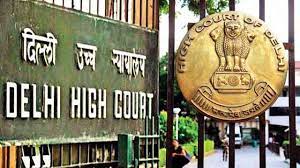(A) Indian Penal Code, 1860 – Section 363, 376 – Code of Criminal Procedure, 1973 –Section 438 – Bail – Kidnapping – Taking away of minor girl for two months – Repeated rape – No Bail (Para 10)
(B)Medical Examination of the victims of sexual assault – Directions issued – Following directions issued:
(i) Circulation of existing guidelines and SOPs: The Department of Health and Family Welfare, Government of NCT of Delhi and Ministry of Health and Family Welfare, Government of India is directed to ensure that the existing guidelines/Standard Operating Procedure for conducting examination of the victims of sexual assault are circulated in all the hospitals in Delhi;
(ii) Regarding additional directions issued vide this judgment: The abovesaid Ministries are also directed to circulate the additional directions contained in the present judgment which be added to the existing SOPs, that in case the victim is pregnant and there are orders for medical termination of pregnancy including for preservation of fetus, the investigating officer will place such order before the Superintendent of the hospital concerned, who will ensure that the doctor concerned who is assigned the duty of medical termination of pregnancy conducts the same with utmost caution;
(iii) Producing the victim within 24 hours of order of competent authority before the hospital even in pregnancy of less than 20 weeks: The investigating officer concerned will produce the victim for the purpose of medical termination of pregnancy within 24 hours of passing of such order before the Superintendent of the concerned hospital, even in cases where the gestation period of the pregnancy is less than 20 weeks as in the present case;
(iv) Preservation of fetus: It is directed that the doctor concerned will ensure that the fetus is preserved and the victim is not discharged in a hurry, resulting in putting the life of the victim in danger and loss of evidence in a sexual assault case;
(v) Recording of reasons for discharge without termination of pregnancy: The doctor concerned will also mention, in case the victim is discharged without termination of pregnancy, the reasons for the same so that the crucial evidence in the form of fetus is not lost;
(vi) Recording of details of treatment for medical termination of pregnancy: It shall be duty of the doctor concerned also to mention in detail, the treatment given to the victim of sexual assault including any medicines given or procedure carried out for the purpose of termination of pregnancy;
(vii) Difficulty faced by the Courts in reading MLCs and need to file typed MLC in sexual assault cases: The Courts experience difficulty in reading or making out the observations in the MLCs or discharge summaries as they may not be comprehensible due to illegibility of the handwriting of the concerned doctor, medical abbreviations and terminology used, etc. This Court remains aware of the fact that when the MLC is being prepared by the doctor, due to various constraints and reasons of privacy etc., it has to be handwritten.
Therefore, it is directed that in cases where medical examination of a victim of sexual assault is conducted, all the hospitals concerned will ensure that alongwith the original MLC as well as discharge summary of such victim, a typed copy of the same is also prepared by the concerned hospital and provided to the investigating officer within a period of one week. It is essential to do so since though at the time of recording of evidence and trial, the doctor concerned may appear, read and depose about the contents of MLC, when the Court has to read and appreciate it at the stage of consideration of bail or framing of charge, it poses difficulty to the Court;
(viii) Typed copy of MLC may be sent by electronic mode to the IO: The typed MLC can also be sent to the investigating officer through electronic means to save the time of the investigating officer and the concerned hospital; (Para 17)
DELHI HIGH COURT
2023 STPL(Web) 75 Delhi
Nabal Thakur (In J.C.) Vs. State
BAIL APPLN. 2128 of 2023-Decided on 9-8-2023
https://stpllaw.in/wp-content/uploads/2023/08/2023-STPLWeb-75-Delhi.pdf







